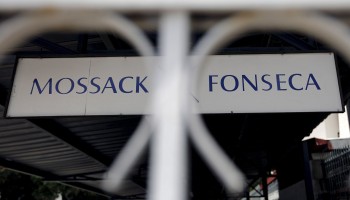The files, obtained by the International Consortium of Investigative Journalists (ICIJ) and several major newspapers in what has been called the biggest bank leak in history, involve more than 30,000 accounts that collectively hold more than US$ 100 billion in assets. London-based HSBC is the world’s second largest bank.
The files were originally hacked by Hervé Falciani, a former IT expert for HSBC, who gave them to the French government. Falciani, who has been indicted for data theft in Switzerland, now lives in France which granted him asylum. Though the files have been available to tax authorities since 2011, this is the first time they have been made public.
The clients range from celebrities and politicians to international criminals condemned by the UN. Some accounts belong to individuals involved in arms trafficking, money laundering, the illegal trade of blood diamonds (diamonds mined in a war zone, often to fund the war) and other precious minerals, and other types of organized crime and corruption.
The papers document the case of Emmanuel Shallop, a British citizen who was later convicted for selling blood diamonds. As reported by ICIJ, the leaked documents show that in 2005 HSBC knew Shallop was under investigation, but aided him in concealing his assets regardless. "We have opened a company account for him based in Dubai [...] The client is very cautious currently, because he is under pressure from Belgian tax authorities, who are investigating his activities in the area of diamond tax fraud.”
In a statement, HSBC said it “acknowledge[s] and [is] accountable for past compliance and control failures”. The bank claims to have taken “significant steps over the past several years to implement reforms” and remove clients who did not meet their standards. According to the statement, the Swiss arm of the HSBC has reduced its client base by 70 percent since 2007.
The ICIJ claims that when it first approached HSBC last month, it was asked to destroy the data. According to the Guardian, France, Belgium, the US, and Argentina are all pursuing criminal investigations and charges against HSBC as a result of these leaks.






